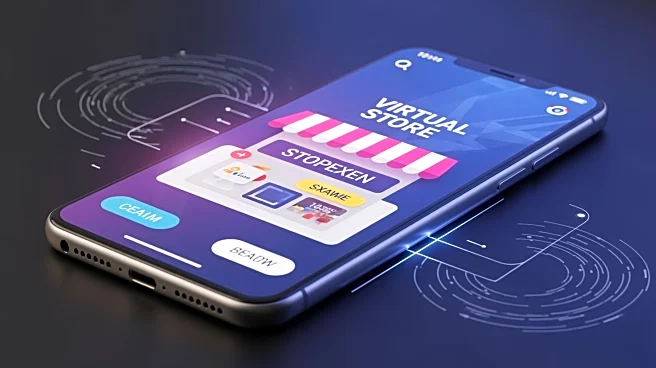What's Happening?
Nintendo has introduced an official Nintendo Store app for iOS and Android devices, expanding its digital storefront accessibility beyond Japan to regions including the US, UK, Canada, and most of Europe.
The app allows users to browse and purchase Nintendo Switch 2 and Switch consoles, hardware accessories, and both physical and digital games. While purchases are completed through the device's default web browser, the app provides a more streamlined way to access the Nintendo eShop compared to traditional mobile browser methods. Users can also access historical gaming activity data, including play records from Switch, Switch 2, Nintendo 3DS, and Wii U consoles, although data for the latter two is only available up to February 2020. Additional features include push notifications for wish list sales and a news feed for the latest Nintendo games and events. The app also offers rewards for checking in at official Nintendo stores and events.
Why It's Important?
The launch of the Nintendo Store app marks a significant expansion of Nintendo's digital presence, potentially increasing its market reach and customer engagement. By providing a more convenient way to access the eShop, Nintendo is likely to enhance user experience and drive sales of its consoles and games. The app's ability to track gaming activity and offer rewards could foster greater brand loyalty and encourage more frequent interactions with Nintendo's ecosystem. This move aligns with broader industry trends where gaming companies are increasingly leveraging mobile platforms to enhance accessibility and user engagement. The app's expansion into major markets like the US and Europe could also bolster Nintendo's competitive position against other gaming giants.
What's Next?
Nintendo's expansion of its app offerings may lead to further enhancements in user experience and engagement strategies. As the app gains traction, Nintendo might introduce additional features or integrations to further streamline the purchasing process or enhance community interaction. The company could also explore partnerships or exclusive content offerings to incentivize app usage. Stakeholders, including gamers and retailers, will likely monitor the app's performance and user feedback to assess its impact on sales and brand loyalty. Future updates or expansions could be influenced by user demand and competitive pressures in the gaming industry.
Beyond the Headlines
The introduction of the Nintendo Store app reflects a broader shift in the gaming industry towards digital and mobile platforms. This transition raises questions about the future of physical game sales and the role of traditional retail outlets. As digital storefronts become more prevalent, issues related to data privacy, digital rights management, and consumer protection may gain prominence. Additionally, the app's reward system could influence consumer behavior, encouraging more frequent purchases and interactions with Nintendo's brand. The long-term implications of such digital strategies could reshape the gaming landscape, affecting how games are marketed, sold, and consumed.










